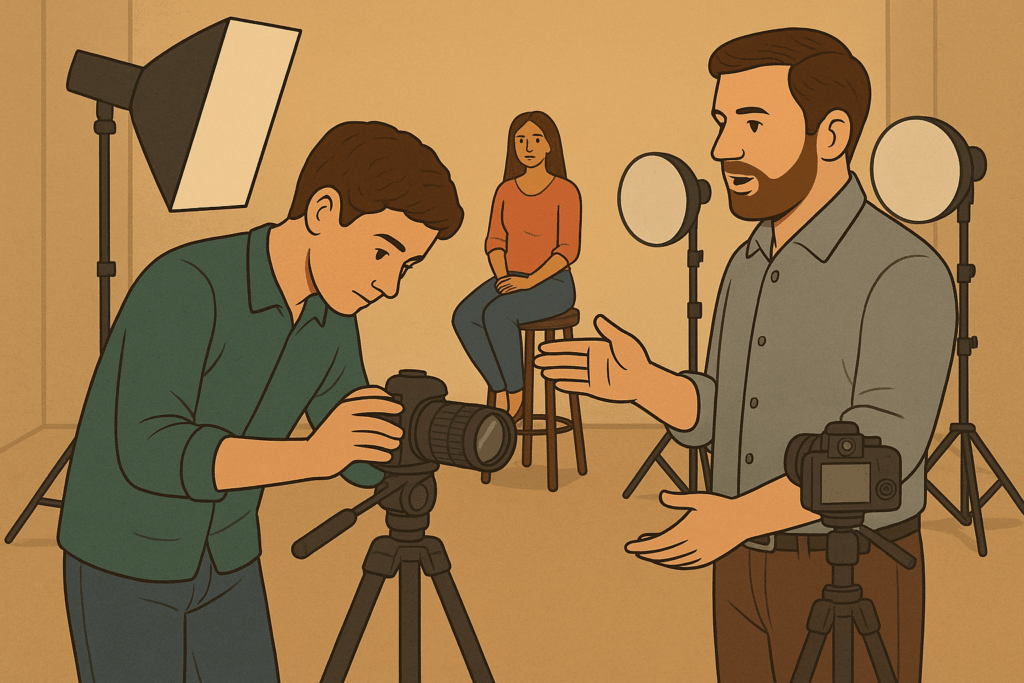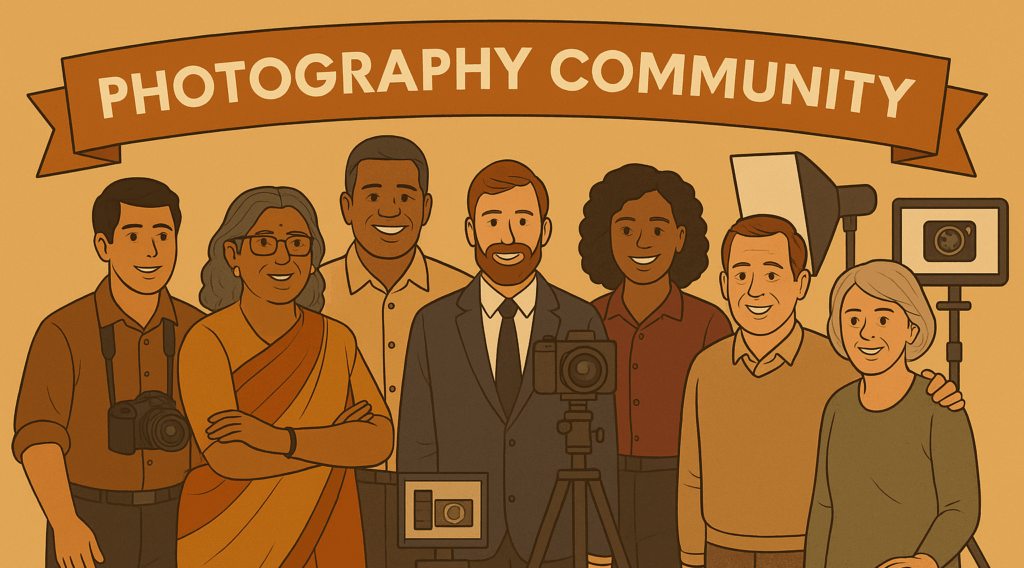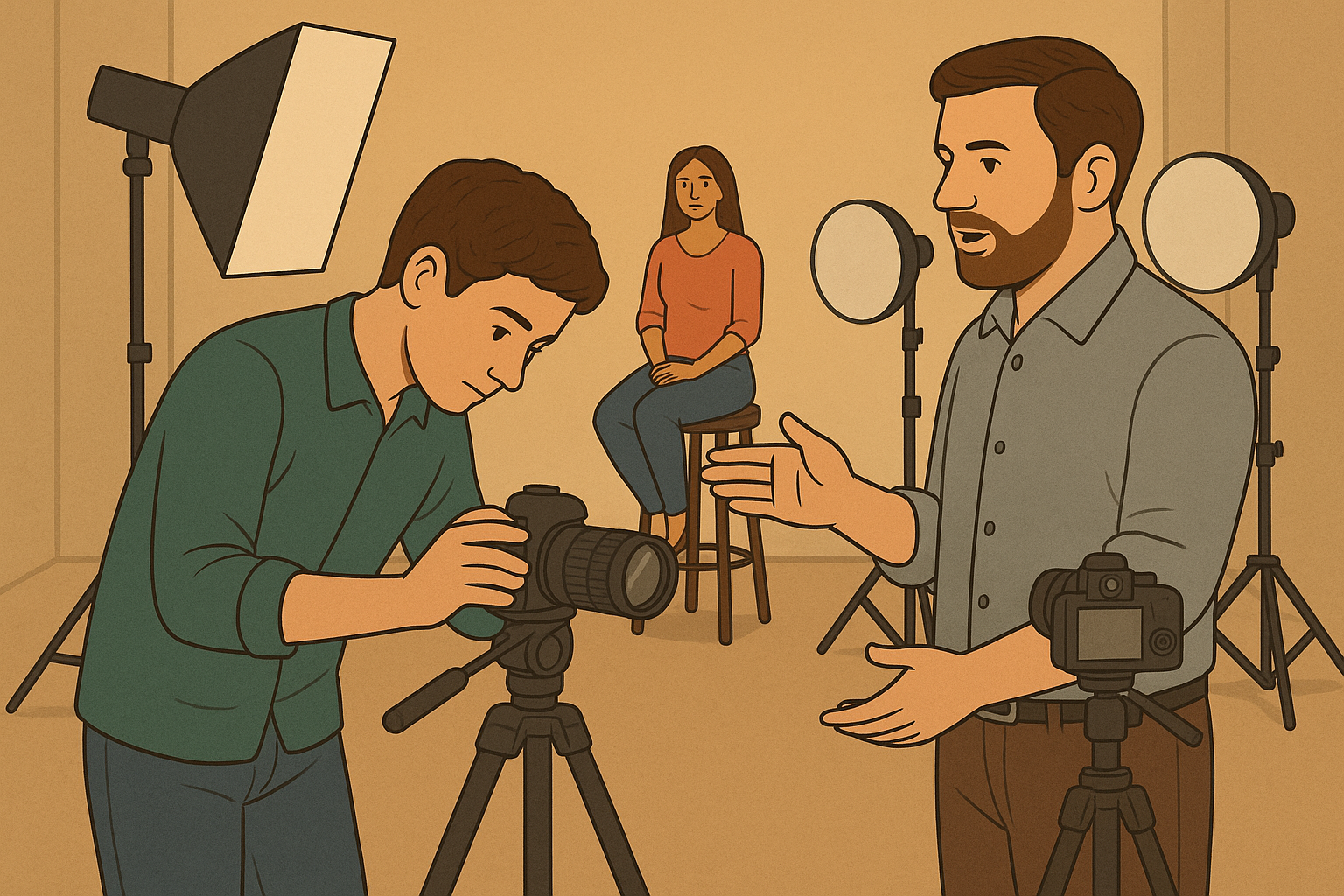By Hridgandha Girish Mistry, Advertising Photographer and Director, Girish Mistry’s Shari Academy, Mumbai
📸 Instagram: @shari_academy | @thewayhridsees
Photography is more than just a profession for me. It is a way of experiencing the world, telling stories, and connecting with people. But as I look at the current state of our industry, I see a challenge, the very foundation that holds it together, photography education, is often undervalued or overlooked. In recent years, there’s been a growing expectation that photography education should be free or very cheap. While this may seem harmless, it slowly weakens the backbone of our craft. When we fail to value learning, we weaken the future of photography itself.
Why Education Matters
Photography education is about much more than learning how to press the shutter or adjust settings. It builds vision, discipline, ethics, and creative responsibility.
A good photography programme goes beyond technical skills. Yes, students learn composition, lighting ratios, editing, and studio work. But they also learn about business, pricing, contracts, intellectual rights, and storytelling. These lessons are what turn a hobbyist into a professional.
While online tutorials and social media videos can offer tips, they cannot replace the depth of in-person training. Watching a video is not the same as having a mentor guide you, correct you, and prepare you for real-world challenges. Just as watching medical videos doesn’t make you a surgeon, watching a lighting tutorial won’t prepare you for a commercial shoot.

What a Good Institute Provides
Running a quality photography school takes time, expertise, and investment. It requires experienced teachers, professional cameras, lighting systems, modifiers, software licences, editing suites, and fully equipped studios. It also needs proper maintenance and regular upgrades.
The real value is in the team, mentors, technicians, and guest professionals who share their knowledge and guide students. Expecting this level of skill and infrastructure for free undervalues the years of effort that built it.
Why This Misunderstanding Exists
Photography is often seen as a passion-driven career, and passion is important. But passion alone doesn’t make you a professional. Fields like medicine and engineering are respected because of structured education and long training.
In photography, the rise of smartphones and social media has blurred the line between casual and professional work. Many think owning a camera or following online tutorials is enough. But true professionalism comes from structured learning, not random tips.
Unstructured online learning also skips crucial topics like pricing, contracts, teamwork, and ethics. A complete education builds both skill and professionalism.

The Role of Continuous Upgradation
Even after formal education, learning never stops. Technology is evolving, from advanced camera systems to AI-powered editing tools. Staying updated is essential.
Professionals need to attend workshops, upgrade software skills, explore new lighting techniques, and learn from other experts. This not only improves creative ability but also helps in meeting industry standards.
Continuous learning ensures that a photographer stays relevant, confident, and respected in the market, which also means they can charge what their expertise is truly worth.
The Damage of Undervaluing Education
When photographers enter the market without proper training, they often don’t know how to price their work. They agree to unpaid jobs or charge far below the value of their time and skill.
This sets an unhealthy trend where clients expect professional quality at beginner rates. Over time, this harms not just newcomers but also experienced professionals.
This is not the fault of the student. It is the result of an industry that doesn’t give proper weight to education.

What We Can Do Together
Aspiring Photographers
See your education as an investment. Choose a school that challenges you and prepares you for real work.
Parents and Families
Support your child’s choice to study photography. Value it the same way you value a degree in any other profession.
Educators and Institutes
Teach beyond the camera. Include business, ethics, pricing, and teamwork. Prepare students for the market, not just the studio.
The Industry
Hire trained photographers. Avoid unpaid internships that exploit talent. Work with institutes that produce skilled professionals.
Brands and Clients
Value the work and effort of students and young professionals. Treat them as future industry leaders, not free labour.
Working Professionals
Keep upgrading your skills. Learn new software, master emerging technologies, and share knowledge with others.

Final Thoughts
Education is not a luxury. It is the foundation that keeps our industry strong and respected. When we invest in learning and keep learning throughout our careers we create photographers who are creative, skilled, ethical, and confident.
Let’s stand together, students, mentors, educators, brands, clients, and families to value education, upgrade skills, and grow the industry together.
When we respect education, we protect the soul of photography. And when the soul is strong, the future will be bright.









